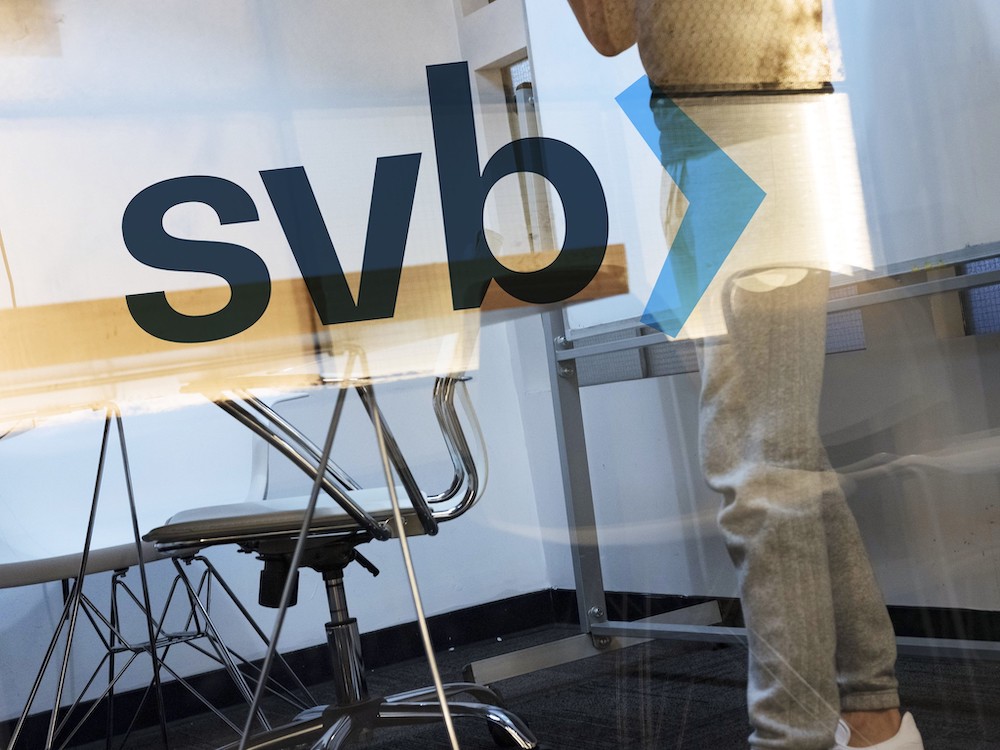Founders, investors and advisors watched the fallout of Silicon Valley Bank’s collapse, which started with a stock sale Wednesday and resulted in the California Department of Financial Protection shutting down the bank not even 48 hours later. The striking series of events will go down as the country’s second-largest bank failure to date, and leaves the startup community with a lot of questions.
The question of if account holders will be able to access the entirety of their funds has been answered: The Federal Deposit Insurance Corporation’s (FDIC) closure of both SVB and Signature Bank fully protects all depositors, shareholders and unsecured debt holders. Any losses to the Deposit Insurance Fund will be recovered through a special and ongoing assessment of banks.
But the weekend was “mayhem,” Dean Miller, president of the Philadelphia Alliance for Capital and Technologies (PACT) told Technical.ly. Founders went from trusting SVB and regarding it as one of the great supporters of the startup ecosystem to wondering if the financial institution would be the reason their company would go under.
Keeping CEOs up at night
Silicon Valley Bank, which got its start in the 1980s, was one of the first financial institutions to take chances on earlier-stage startups, and inexperienced or unestablished founders. While most banks would only lend to companies with credit or established assets, SVB was established on the principle that early startups needed the financial support to grow the ecosystem, Miller said.
When the news started developing last week that funds past the FDIC-protected $250,000 could be in trouble, the PACT exec saw founders needing to act and make decisions quickly. While Miller was in contact with state officials, trying to learn whether the Federal Reserve System would step in, he knew founders spent all weekend on the phone with their investors.
“It was unnerving. I would say at their core, entrepreneurs care about a lot of things, but taking care of your people is top,” Miller said. “And first instinct is, ‘Shit, what if I can’t make payroll?’ It’s one of the things that can keep CEOs awake at night.”
The FDIC did ultimately step in, and that immediate worry about losing funds is off the table. But looking forward, startups will need to analyze how they manage their money, Miller said. He has concerns that trust with smaller institutions will be lost — SVB was the United States’ 16th largest bank — as competition between financial institutions keeps the community thriving.
An exec’s next steps
Eric Corkhill, CEO of medical alert device company Neuralert, said the company had a small account with SVB used for wire transfers or ACH payments. They used the bank because there wasn’t a fee for those services, he said.
“It was a convenient bank account to use, but I never really populated the majority of our corporate raise amount in that account,” he told Technical.ly. “I only had it loaded up to be that month’s worth of bills” as of Friday, which totaled less than the $250,000 threshold.
After hearing of SVB’s collapse and closure, Corkhill said he talked to his financial services firm and was assured he would be able to get his money out this week. Since then, he’s been in contact with SVB and is in the process of transferring the money — “I’m anxious to close out that account.”
Corkhill said the company also has an account with Citizens Bank for its other banking needs, and going forward, he’s not exactly sure what he’s going to do next besides move the money from the SVB account into the Citizens Bank account. But he interested in looking into other “tech-friendly” banks.
“It’s not just the banking services, it’s the networking, being able to be introduced to certain VCs, private equity or family accounts,” he said. “There’s definitely a value add over and above traditional banking, so that’s why I would like to try to find an alternative to Silicon Valley.”
Advice to startup leaders
Abe Kwon, a startup lawyer and partner at Goodwin’s Philly office, said the situation has been “changing by the hour” since concerns were raised with SVB last week. His advice to founders is to try their best to keep up with the constantly changing environment and to stay in close contact with your investors, board and legal council.
“But stay calm,” Kwon said. “It is constantly changing.”
Kwon said a decent amount of his clients did bank with SVB and some withdrew their funds last week to deposit to other accounts, while others initiated wire transfers that never went through. Kwon even saw some startups transferring funds to a founders’ personal account — a potentially tricky legal move, he said, as some banks that work with startups require you hold a cash balance if you’re also getting a loan from them.
“There was a lot of scrambling,” Kwon said. “A lot of companies tried to secure last-minute financing over the weekend, but thankfully we heard from the FDIC that they would get all the money they held with SVB.”
Kwon’s been serving the startup space across the decade of his legal career, and hasn’t seen anything like this before, he said. Though its hard to give advice about such a specific event, he said, it’s a good reminder that companies should keep their cash management strategies top of mind.
Looking for resources about what move to make next? Technical.ly reporter Alanah Nichole Davis put together a resource guide today that includes a SVB crisis playbook for founders, Goodwin Procter’s SVB FAQ sheet, and some key considerations from law firm Shearman & Searling.







